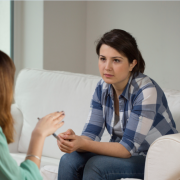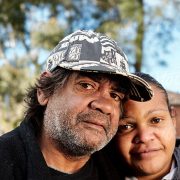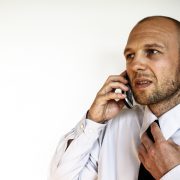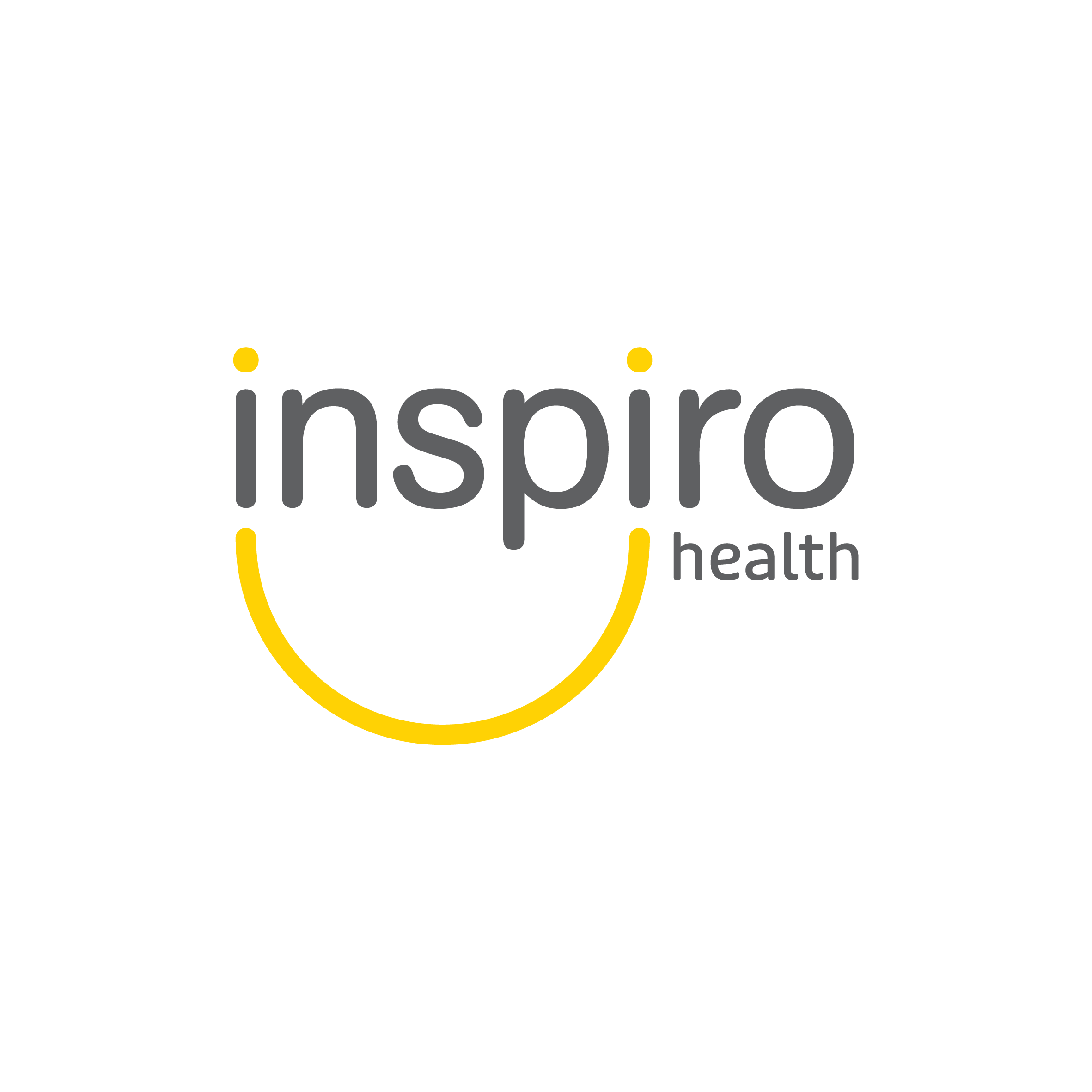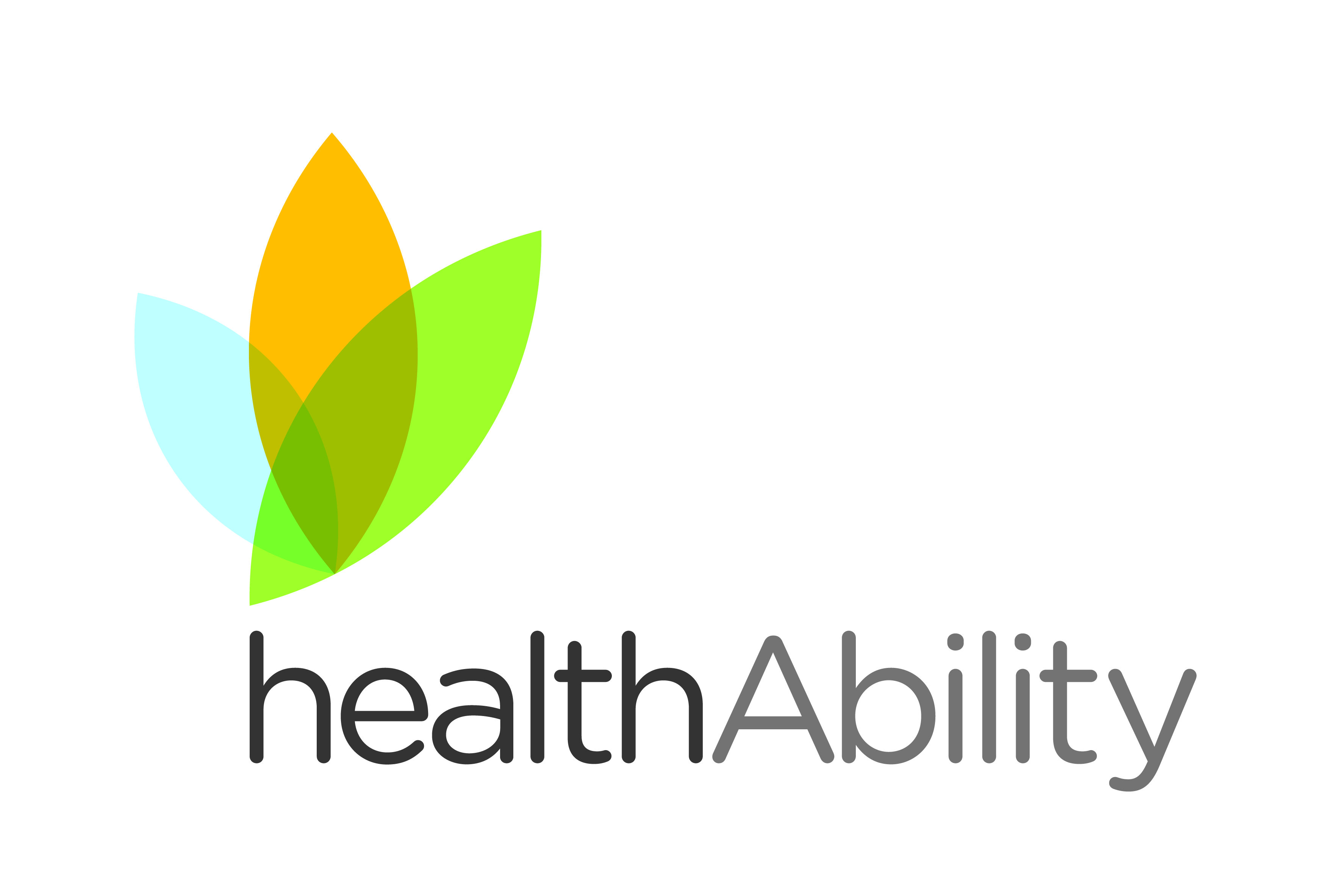
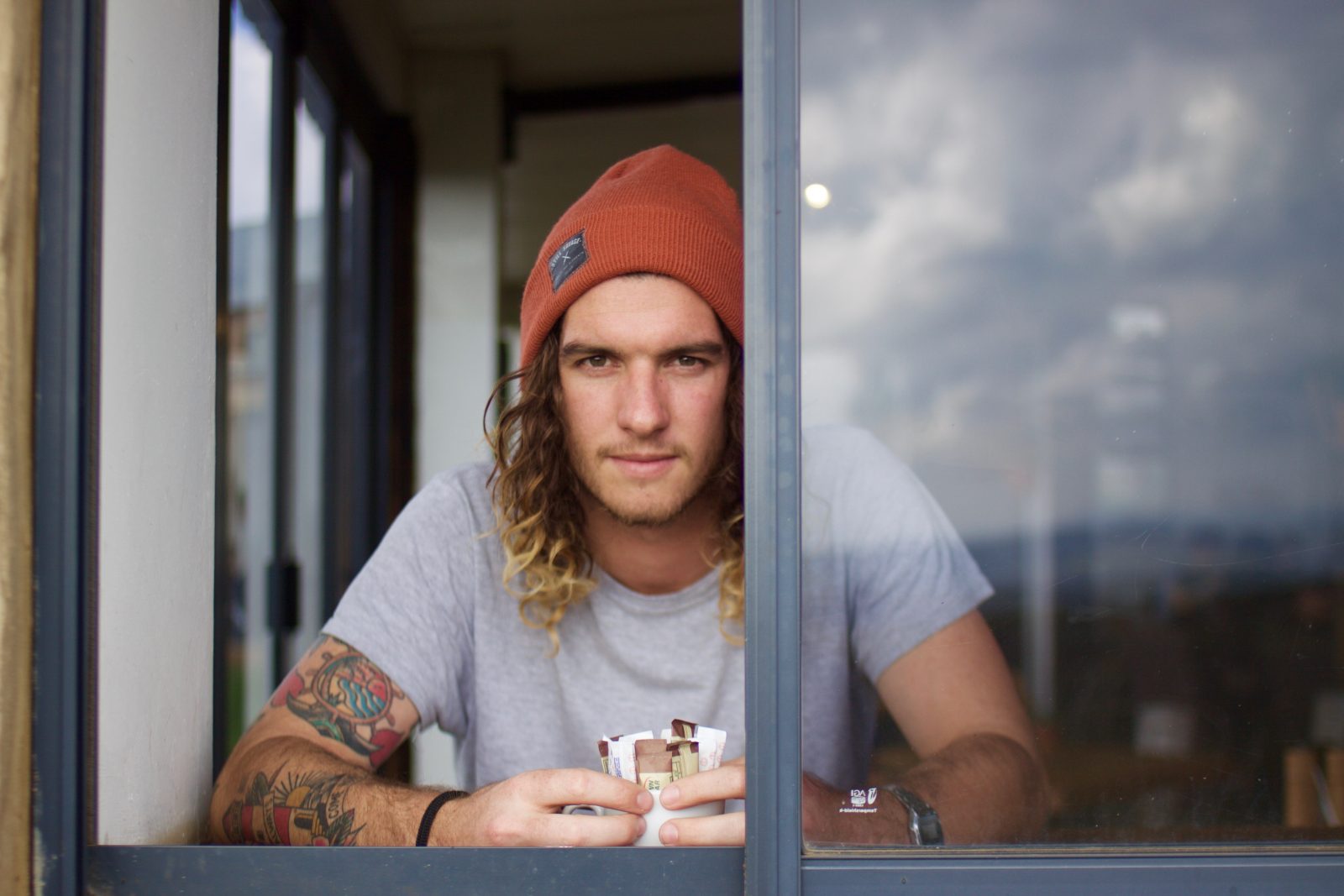
Finding Alcohol and Other Drug Services
Victorians can access a range of different alcohol and other drug treatment services. This page explains the different types of treatment options available to your family member and how to 'navigate the system' to find services in your local area.
There are many different types of alcohol and other drug treatment services. Most of these services are funded by the State and Federal Government and provided at no cost to you. In most cases, you don’t need a GP referral or Medicare card to access the service.
Not all treatment options will suit every person, and someone might need different types of treatment at different stages in their recovery. It’s important to discuss the treatment options which will be right for you and your family. You can call your local intake service to talk through the different options and answer any questions you might have about treatment services for you or your family member.
Alcohol and other drug treatment options include:
- Individual counselling
- Online or telephone counselling
- Groups and day programs
- Peer support programs
- Family therapy or family counselling
- Residential withdrawal (‘detox’)
- Residential rehabilitation (‘rehab’)
- Medication (‘pharmacotherapy’)
- Needle and syringe programs
What services are there for families?
Families can access counselling and support with or without the person using alcohol and other drugs. Families can attend counselling and support, even if the person using substances does not want to access treatment. Support options for families include:
- Family counselling
- Family support groups and peer support
- Family education sessions.
For detailed information about these family support services, including how to find your local services, please see the Support Services for Families page on our website.
Most of these services are funded by the State and Federal governments and provided at no cost to you.
Where can I find more information?
You can find out more about these different treatment options by clicking on the topics below. To find out how to refer to an alcohol or other drug service, read the section below ‘How do I find a treatment service?’ or click on the video below by Connect4Health to hear more about services in Victoria.
Your family member might decide to have counselling to help them with their alcohol and other drug use.
Alcohol and other drug counselling can be offered in person, over telehealth or online.
Although the focus of counselling is on making changes in alcohol or other drug use, the counselling sessions will also cover other topics like family relationships, mental health, physical health, emotions and well-being. The counsellor can also link people in with other support services, like mental health, housing, and residential treatment programs. Your family member needs to be stable enough to attend regular counselling appointments at a clinic, but they don’t have to have stopped using to see a counsellor.
Most people come to counselling once a week or once a fortnight for a 50-60 minute session. Some people only come for a few sessions, but others might come for longer (for example, three to six months).
How much does it cost?
Alcohol and other drug counselling is usually funded by the State and Federal Governments and offered at no cost. It is offered by many services all over Victoria.
How do you refer to alcohol and other drug counselling?
In Victoria, people can refer themselves for alcohol and other drug counselling through the central intake number in their region – you do not need a GP referral to see the counsellor. The person using alcohol or other drugs does need to be willing to attend the appointment and talk to the counsellor, although they don’t need to be ready to stop using.
- To find out more information about counselling or to make an appointment to see an alcohol or other drug counsellor, please call your local intake service.
Is counselling available over the phone or telehealth?
Most counselling services can offer both ‘face to face’ (in person) and telephone or telehealth counselling sessions. There are also several telephone helpline services for people and families affected by alcohol and other drugs. Telephone counselling can be especially helpful if you live a long way from a health service or if you want support after hours.
Where can I access telephone drug and alcohol counselling?
- In Victoria, DirectLine offers free telephone counselling, advice and support for people with alcohol and other drug problems and their families. This service is funded by the State Government and provided at no cost to you. You can contact DirectLine (24 hours a day, 7 days a week) on 1800 888 236 or visit their website here for more information.
What is online counselling for alcohol and other drug problems?
You can also access online counselling (counselling over the internet) using a computer, tablet or smartphone. A trained counsellor will ‘chat’ with you online by typing messages back and forward with you on the computer. You can also email the counsellor or set up a regular time for online counselling with the same counsellor.
You can find out more about online drug and alcohol counselling services in Australia at the Counselling Online website by clicking here.
Where can I access online drug and alcohol counselling?
Counselling Online offers free and confidential counselling for Australians and their families who are affected by alcohol and other drugs. This service is funded by the Commonwealth Department of Health and can be used by anyone in Australia. To use the service or find out more information, visit the Counselling Online website by clicking here.
‘Peer support groups’ are groups run by people with their own lived experiences of alcohol or other drug use and recovery (known as ‘peers’). Groups can be a safe place for people to share experiences and encourage each other in making positive life changes. Some peer support groups require the person to be abstinent (not use any alcohol or other drugs), whilst others are suitable for people who haven’t stopped (or don’t want to stop) using. Some people attend a peer support group as well as other treatment options, like counselling.
How much does it cost?
Peer support groups are usually government funded or volunteer-run programs which are free to attend. You do not need a referral from a GP or drug and alcohol worker to attend the group.
Where do I find a peer support group?
Most drug and alcohol treatment services offer peer support groups. You can find your local service by contacting DirectLine on 1800 888 236 or visiting their website here.
What are ‘Twelve Step’ programs?
‘Twelve step’ programs such as ‘Alcoholics Anonymous’ and ‘Narcotics Anonymous’ are peer support groups based on completing ‘twelve steps of change’ and maintaining abstinence (not using any alcohol or other drugs). Twelve step groups operate daily around Melbourne and all over Australia.
- You can find a meeting near you by searching on the Alcoholics Anonymous and Narcotics Anonymous websites.
What are ‘SMART Recovery’ groups?
‘SMART Recovery’ groups are free and confidential peer support groups which are run by trained peer volunteers and workers across Australia. SMART Recovery groups are open to people with alcohol and other drug problems, as well as gambling problems and other types of addiction. The groups focus on the ‘here and now’, helping people to support each other in recovery.
- You can find out more about SMART Recovery Australia groups on their website by clicking here, or by phoning 02 9373 5100.
‘Detox’ (or residential withdrawal) is a short 7-10 day stay in a hospital or withdrawal unit so the person can safely stop using alcohol or other drugs. The unit is staffed 24 hours a day by nurses or support workers who check the person’s physical health and help them with support plans for when they leave. The person may be prescribed medication during their stay to help them manage the withdrawal symptoms. Withdrawal symptoms might include shaking, sweating, vomiting, seizures, body aches, anxiety or sleep problems.
In some rare cases, detox can also be undertaken as an outpatient, where the person lives in their own home but visits the clinic each day and is seen by a specialist doctor or nurse. This type of detox is not appropriate for most people.
There are different detox services for young people (aged 12-21 years old) and for adults (aged 18 years and over).
Why would someone need detox?
Detox is usually only recommended if a person is dependent on alcohol or other drugs. Usually this means the person is using the substance every day, and that they experience physical withdrawal symptoms (like sweating, shaking or vomiting) if they cut down or stop using. In some cases withdrawal can be extremely dangerous, or even fatal. This is why it’s important for the person to be monitored carefully whilst they withdraw. This is especially true for alcohol withdrawal and benzodiazepine (sleeping tablets) withdrawal.
Does detox work?
Detox is only one step in the recovery process. Research shows that detox alone does not usually result in long-term changes to alcohol or other drug use. However, it can be useful for the person to have a ‘break’ from using for a week, and detox is a safe way to withdraw and stop using. Sometimes a person will complete detox several times during their recovery journey.
It is strongly recommended that the person has counselling or other supports in place after they leave detox. The more supports that are in place, the more likely the person is to make long-lasting change.
People may need more support after completing a detox because it is not uncommon to have a ‘slip up’ or start using again after leaving detox. The risk of overdose at this time is high, as the person’s body is less able to handle the alcohol or other drugs and it will take less for them to become intoxicated. For more information about overdose, please see our page on ‘Information about Alcohol and Other Drugs’ by clicking here.
How much does it cost?
Detox programs can be privately or publicly run, and the costs and waiting lists can vary between services. Publicly funded detox services usually have very low costs, and can often be paid for by the person’s Centrelink payments if they receive welfare. Privately funded detox services run within private hospitals can be claimed under private health insurance.
It’s best to phone your local intake service and ask the worker about the different options which may be suitable for your family member.
How does someone refer to a detox program?
All referrals for publicly funded detox programs services are made by the central intake service – you do not make a referral directly to the detox service itself. Some detox programs will also need a GP referral.
For private detox programs, you will need to contact the service directly. We strongly recommend reading the section on public and private services below first.
- Please phone your local intake service for more information or to make a referral to a detox service.
Where can I get more information?
- For more information about the differences between public and privately funded detox services, visit our section below on ‘What are the differences between public and private treatment services?’
- You can click on the videos below to see a short video about two different detox services: Wellington House (an adult detox unit in Box Hill which is run by Eastern Health) and YSAS Glen Iris Residential Withdrawal Service (a youth detox unit in Glen Iris which is run by YSAS).
‘Rehab’ (or residential rehabilitation) is a longer-term treatment option where a person lives away from home in a residential community or hospital for a number of weeks or months. Before going to rehab, the person must have completed a detox (residential withdrawal) or prove they haven’t used alcohol or other drugs for several days (for example, by taking urine drug screen tests).
Rehab usually involves group programs, physical activity and learning life skills. Some programs also offer a small amount of individual counselling. A person can stay at a rehab from between one month to one or two years, depending on their needs and the program. Some rehab programs provide on-going support to people after finishing the program to help them re-adjust to life back in the community.
Is rehab the best type of treatment?
Residential rehabilitation will not suit everyone. Rehab is a more intensive treatment option than ‘outpatient’ (community-based) treatment, such as counselling. In general, most people who choose to go to a residential rehabilitation program have been using for a long time or are using very heavily.
Living in a rehab facility for several weeks, months or years can be an overwhelming thought for someone using alcohol and other drugs. It can mean that they have to give up their house or accommodation, lose their job, and spend time away from family and friends.
On the other hand, it can be really helpful for the person to have a break from their usual lifestyle and have time and space to focus on their recovery.
It can be a big decision to go into a residential rehab service. Each service is different and there are lots of options in terms of cost, location and length of stay.
Who can attend a rehab program?
To attend a rehab program, the person has to commit to not using any alcohol or other drugs. There are also some limits on the amount and type of medications that can be used at rehab.
There are specialist rehab programs for young people (aged 12-21 years), adults (aged 18 years and over) and Aboriginal and Torres Strait Islander people.
How much does it cost?
Rehab programs can be privately or publicly run, and the costs and waiting lists can vary between services. It’s best to phone your local intake service and ask the worker about the different options which may be suitable for your family member.
Publicly funded rehab programs generally have a very low cost, and can often be paid out of the person’s Centrelink payment if they are receiving welfare. Privately funded rehab programs delivered in a private hospital are usually covered under private health insurance. Other privately run rehab programs may have very large costs which are not able to be claimed on Medicare or private health insurance. You can find out more about the difference between public and private services below.
How does someone refer to a rehab program?
All referrals for publicly funded rehab services are made by the central intake service – you do not make a referral directly to the rehab service itself.
For private rehab programs, you will need to contact the service directly. We strongly recommend reading the section on public and private services below first.
Where can I find more information?
- For more information about different rehab services or to make a referral, please contact your local intake service.
- For more information about the differences between public and privately funded rehab services, visit our section below on the differences between public and private services.
- To find out more about what to expect a rehab service, you can do a ‘virtual tour’ of The Salvation Army Bridge Residential Program on their website by clicking here.
- Click on the video below to find out more about the youth residential rehabilitation program called ‘Birribi’ which is run by YSAS.
Day programs are usually a six to eight week program where a person lives at their home and attends an alcohol and other drug treatment program during the day. These programs often involve group therapy, peer support and life skills classes. To be able to do a day program, the person has to commit to not using alcohol or other drugs during the program and might have to go to detox before starting the program. They also need to have stable accommodation and be able to attend the program each day.
How much does it cost?
Day programs can be either publicly or privately funded. Most publicly funded day programs are provided at no cost or low cost. Please call your local intake service to find out about which programs are available, the costs and waitlist.
How does someone refer to a day program?
- Please call your local intake service to discuss referring somebody to a day program.
Where can I find more information?
- To find out if a day rehab program is suitable for your family member, or to make a referral to a day program, please call the central intake number 1800 778 278.
- Uniting Care ReGen runs a day program in Narre Warren, Preston and Coburg (Torque) called “Catalyst”. There is a youth and adult Catalyst program available. To find out more about Catalyst, please click here.
- YSAS runs a day program in Abbotsford (Melbourne) for young people aged 12 – 21 years. To find out more about this day program, click on the video below.
There are both publicly and privately funded alcohol and other drug treatment services available in Victoria.
What are ‘public treatment services’?
Public treatment services are funded by the State and Federal governments, which means they are provided at no cost or for a very low cost. These services must provide safe, high quality services, and meet strict quality standards. Publicly funded services include counselling, day programs, ‘detox’ (residential withdrawal), ‘rehab’ (residential rehabilitation), peer support and some medications.
What are ‘private treatment services’?
Some private hospitals offer alcohol and other drug treatment services, such as group programs and short-term residential services (‘detox’ and ‘rehab’). Counselling services can also be accessed privately, for example, through a psychologist in a private practice. You may be able to access Medicare rebates or private health insurance for some of these services.
There are also some private residential ‘rehab’ programs which are not run as part of a private hospital or health service. These programs can have very high fees and in many cases are not accredited health services.
How do I know if a service is accredited?
It can be confusing to know which services are accredited and which are best for your family member. All private hospitals and publicly funded alcohol and other drug services are accredited health providers who must meet strict quality and safety standards. There are currently no regulations for other privately run alcohol and other drug treatment services, such as private rehabilitation services. If you do choose to access services privately, we recommend that you use an accredited health service and check whether you can receive any rebates from Medicare or through private health insurance.
In general, services which are funded by the State or Federal Government, or for which you can access Medicare or private health insurance rebates, will be accredited health services. We strongly encourage you to call your local intake service to speak to a qualified drug and alcohol worker who can refer you to an accredited service. We have also developed a checklist tool to help you assess private services, which can be found here.
We strongly recommend that your first point of contact be with an accredited health service provider, as they can refer you to private services, if necessary.
Will private health insurance cover the cost of alcohol and other drug treatment?
All public alcohol and other drug treatment services are funded by the State and Federal Government and provided at no cost, or for a minimal fee. These services are generally not covered by private health insurance.
What type of treatment services does private health insurance cover?
Alcohol and other drug treatment provided in a private hospital may be covered by private health insurance. What is covered, and how much is covered, will depend on your insurance policy. Generally, private health insurance will cover the cost of hospital accommodation and some of the medical fees. There might be some out-of-pocket costs, including:
- Medical services which occur outside of hospital (such as check-ups).
- The ‘gap fee’ on medical services whilst in hospital – this is the difference between what your health insurer and Medicare are paying for, and what the service is charging for the treatment. Ask the hospital what the ‘gap fee’ is for the treatment to find out how much you would be charged to use the service there.
- Insurance excess fee, which you usually pay as part of your policy to your insurance agency or hospital as an upfront fee.
What are the waiting periods for private health insurance to access alcohol and other drug treatment?
When you purchase a new health insurance policy, you may have to wait for a period of time before you can use the service. The maximum waiting period for hospital rehabilitation services, including alcohol and other drug rehabilitation, is two months. This means that you or your family member can be covered for treatment two months after starting a new policy.
If you change from one health insurer to another without a break in between, you do not need to repeat the hospital waiting periods. However, if you are adding to or upgrading your hospital cover, you will need to complete the waiting periods.
Where can I find out more information?
- You can find more information about accredited alcohol and other drug treatment services by visiting the Victorian Department of Health website here.
- For a fact sheet with a checklist to help in choosing the right service for you, please click here.
- For more information about private health insurance, contact your private health insurance company or click here to read the Private Health Insurance Ombudsmen guidelines on waiting periods.
- The Department of Human Services offers a Financial Information Service that can help you understand your financial options, and help you choose between different financial options. For more information on the Financial Information Service please click here, or call 13 23 00 and say ‘Financial Information Service’ when prompted.
What is a ‘Needle and Syringe Program’ or ‘NSP’?
A Needle and Syringe Program (or ‘NSP’) is a free service provided by the Government for people who inject drugs. Needle and syringe programs aim to reduce the spread of blood borne viruses (such as Hepatitis C and HIV) in the community. They do this by providing free sterile injecting equipment (including needles and syringes) and a safe place to dispose of used needles, as well as free sexual health items (like condoms). A needle and syringe program can also provide health information, ways to reduce drug-related harms and links into treatment services. These programs are private and confidential, and people who use them are anonymous (they do not provide their name or details).
What’s the difference between a ‘medically supervised injecting room’ and a Needle and Syringe Program?
A Needle Syringe Program is not the same as a ‘medically supervised injecting room’ or ‘safe infecting room’. A Needle and Syringe Program provides clean and sterile equipment and a safe place to dispose of used injecting equipment. People are not allowed to use drugs in the Needle and Syringe Program.
Medically supervised injecting rooms are a health service where someone can use heroin or other drugs under supervision from a medical or health professional, rather than using in a public place or on the street. There are trained health workers on site who can look after the person whilst they are using, make sure that they don’t accidentally overdose, and refer them to treatment and support services. Supervised injecting rooms have been used around the world to reduce the number of people who overdose or use in public places and encourage people injecting drugs to access treatment.
Studies carried out on supervised injecting facilities have shown that they help to reduce the spread of HIV and Hepatitis C, as well as reducing the number of deaths and injuries due to drug overdose, the number of people who inject drugs in public places and the numbers of needles found in public places. Importantly, studies also show that safe injecting rooms help more people to be referred to treatment and support services.
Currently there is one medically supervised injecting room in Victoria, located in North Richmond. For more information on Victoria’s medically supervised injecting room, click here or visit the North Richmond Community Health website here.
Where can I find a Needle and Syringe Program in Victoria?
The department of Health and Human Services has an interactive map on their site that shows all the Needle and Syringe Program locations, as well as safe disposal sites, vehicle outreaches services and others. It can be found here.
Many chemists also sell injecting equipment for a small cost.
What do I do if I find a needle or syringe on the ground?
If you find a syringe on public property, please contact your local council. Most councils will have a dedicated page on their website about their needle or syringe clean up services
If you find a needle or syringe on private property Melbourne, you can phone the Needle Disposal Hotline on 1800 552 355.
Where can I get more information?
- Click here to read a booklet by the Department of Health and Ageing which answers frequently asked questions about needle and syringe programs.
- For more information about reducing the harms of injecting drug use, please visit the Harm Reduction Victoria website.
There are some types of medication which can be used to treat alcohol and other drug problems. Some of these medications are used to help manage cravings, others are used to help someone safely withdraw (‘detox’) from alcohol or other drugs or stop them from going into withdrawal.
What is a ‘replacement therapy’?
‘Replacement therapy’ medications (often called ‘pharmacotherapy’) work by replacing a drug (such as heroin or nicotine) with a medication to help the person manage cravings, avoid withdrawal symptoms and stop using the drug. For example, if you smoke cigarettes you can use nicotine patches to give your body nicotine instead of smoking cigarettes. Over time, you can reduce the number of patches that you use until you’re not using any patches or smoking any cigarettes. This is called ‘nicotine replacement therapy’.
The other type of replacement therapy used in alcohol and other drug treatment is ‘opioid replacement therapy’, which is used to treat dependence on heroin and other types of opioids (like codeine, morphine or oxycodone). Opioid replacement therapy includes medications such as Methadone Syrup® (methadone), Subutex® (buprenorphine), Suboxone® (buprenorphine plus naloxone) and Sublocade® (long-acting injectable buprenorphine).
There are currently no replacement therapies for other drugs, such as alcohol or ice (methamphetamine). However, there are some medications which can be used to manage withdrawal symptoms or to reduce cravings in the short-term. It is best to speak to your GP or an addiction medicine specialist about these medication options.
- For more information about opioid replacement therapy medications, click here to read a factsheet on methadone or click here to read a factsheet on buprenorphine by the Australian Alcohol and Drug Foundation.
How does someone start nicotine replacement therapy?
The best place to start if you want to make changes in nicotine use (tobacco smoking) is to speak to your GP, who may prescribe nicotine replacement therapy or refer you to a quit smoking program. Quit Victoria can also provide information and support to stop tobacco smoking. You can call them on 13 78 48 or visit their website here.
How does someone start opioid replacement therapy?
You need to be prescribed opioid replacement therapy by a doctor. This medication is not suitable for everyone, and you need to have a medical check-up before starting the program. Not all doctors can prescribe this medication. To find out which doctors in Victoria are able to prescribe opioid replacement therapy, contact DirectLine on 1800 888 236.
What medications can be used to treat alcohol problems?
There are some medications which can be used to help reduce cravings for alcohol, such as naltrexone (ReVia®) and acamprosate (Campral®). These medications are not suitable for everyone, and do not guarantee that the person will not drink. Speak to your GP to find out more about these medications, and whether they would be suitable for your family member.
There are also medications such as diazepam (Valium®) which are used to help manage or prevent alcohol withdrawal symptoms, such as sweating, shaking and seizures. These symptoms can be very dangerous and for this reason someone withdrawing from alcohol should be monitored by a doctor or nurse.
- For more information about medications to treat alcohol problems, click here to visit a health information website by the South Australian government
- Click here to read a factsheet on naltrexone by the South Australian government
How much do these medications cost?
The cost of the medication to treat alcohol and other drug problems will depend on which type of medication you are prescribed, how often you need to take it, and at what dose. People who have a HealthCare Card or Pension Card will usually pay less for the medications. Speak to your GP or chemist to find out the exact cost for you.
Where can I get more information?
- For more information on medications for alcohol and other drug problems, or to find a doctor who can prescribe these medications in Victoria, contact DirectLine on 1800 888 236 (24hrs) or the Pharmacotherapy Advocacy Mediation and Support (PAMS) service on 1800 443 844.
- Medicines Line (1300 Medicine) is a free telephone service which provides information on prescription, over-the-counter and complementary medicines (such as herbal medicines and vitamins). This service can give information about how a medication works, how to take medication, possible interactions with other medications, and other information.
- The Poisons Information Centre is a 24 hour service providing advice about what to do if a person has made a mistake with medication, has overdosed (taken more than the recommended amount) or has been poisoned. In an emergency, call 000. For more information on the Poisons Information Centre, please click here or phone 13 11 26.
Aboriginal and Torres Strait Islander Communities
Aboriginal and Torres Strait Islander people can choose to access mainstream alcohol and other drugs services, or Aboriginal-specific services. All community-based alcohol and other drug services can prioritise Aboriginal and Torres Strait Islander people to access treatment. Many services will also have an Aboriginal Liaison Worker who provides specialist care and support for Aboriginal people within the service.
Ngwala Willumbong are based in St Kilda (Melbourne) and run a number of different alcohol and other drug services for Aboriginal and Torres Strait Islander people and their families. These services include outreach, counselling, family violence and youth services. Ngwala also runs two men’s recovery centres (Yitjawudik and Galiamble) and a women’s recovery centre (Winja Ulupna).
Bunjilwarra is an Aboriginal Youth Residential Rehabilitation program in Melbourne for young Aboriginal people aged between 16-25 years.
- To make a referral to Ngwala Willumbong or for more information about this service, visit their website here or phone 03 9510 3233.
- For more information or to make a referral to Bunjilwarra, please visit their website here.
- For more information about other Aboriginal and Torres Strait Islander services, please phone DirectLine on 1800 888 236.
Culturally and Linguistically Diverse Communities
All publicly funded alcohol and other drug treatment services can provide a language translator for you at no cost. Please let the service know in advance if you need a translator.
The Muslim Youth and Family (MYAF) service offers drug and alcohol counselling and support for young people and famillies in Glenroy, funded by the Federal Government. Find out more about the MYAF service by calling 03 9078 3840 or click here.
- For more information, the Australian Alcohol and Drug Foundation website has a list of resources for people from different cultural and language backgrounds which you can access here.
Lesbian, Gay, Bisexual, Transgender, Intersex, and Queer (LGBTIQ) Services
Thorne Harbour is the state-wide alcohol and other drug treatment service for the LGBTIQ community in Victoria. They run a number of specialist alcohol and other drug programs and also offer individual counselling and medical services. LGBTIQ+ people can also access mainstream alcohol and other drug treatment services (services available to the general public).
Drugs and pregnancy
The Women’s Alcohol and Drug Service (WADS) is the state-wide alcohol and other drug service for pregnant people in Victoria who have complex alcohol and other drug use. Some public hospitals also have specialist maternity services for pregnant people using alcohol and other drugs.
There is a Mother and Baby Withdrawal Unit at ReGen in Coburg. This specialist unit allows women with young babies (under 12 months old) to stay for up to 14 days with their child whilst they withdraw (‘detox’) from alcohol or other drugs. The unit is open to all women in Victoria. To make a referral to the Mother and Baby Withdrawal Service, contact your local intake service.
- For more information on the Women’s Alcohol and Other Drug Service you can contact WADS on 03 8345 3931, visit their website here or speak to your GP or midwife.
- For detailed information on the Mother and Baby Withdrawal Unit, click here to visit the website.
- For more information on how to make a referral to the Mother and Baby Withdrawal Unit, click here.
- For more information about alcohol and drug use in pregnancy, see our ‘Information about Alcohol and Other Drugs’.
Young people have different needs and priorities when it comes to accessing support and treatment services.
Youth Alcohol and Other Drug Services
There are specialist alcohol and other drug services for young people. This includes youth counselling, youth outreach support (youth workers who meet young people in the community, rather than in a clinic), youth withdrawal and youth rehabilitation services. These services are funded by the State and Federal Government and are provided at no cost to you. You don’t need a GP referral to access these services.
You can also phone your central intake service to ask about referrals to youth alcohol and other drug services.
To find youth services in other parts of Victoria, call the Youth Drug and Alcohol Advice (YoDAA) service on 1800 458 685 (9am – 8pm) or visit their website here for advice and information.
Youth Support Services
There are youth support services for young people in every local council area in Victoria. These ‘drop in’ centres offer information, support, group programs and referrals for young people aged up to 25. All services are free, and include things like music or art groups, youth support workers, access to computers and the internet, and recreation programs. They also provide a safe space for young people to relax and hang out.
To find a youth support service in other areas of Victoria or Australia, please contact your local council.
Housing Support for Young People
Young people aged 12 – 25 years old who are homeless or at risk of homelessness and spend time in the Melbourne CBD can access support, information and housing services at FrontYard Youth Services at Melbourne City Mission. They provide housing support as well as access to other services, like doctors, youth workers and legal advice. Young people can drop in for an appointment at 19 King Street in the Melbourne CBD, or phone 1800 800 531. You can visit their website for more information here.
For young people outside of the Melbourne CBD, the Department of Health and Human Services has a 24hr crisis accommodation line, 1800 825 955 .
The visit Homelessness Australia website, found here, who also provides information for people who are homeless.
Youth Mental Health Services
headspace is a national youth mental health service with centres across Australia. headspace are funded by the Federal Government to provide mental health support, counselling and referrals for young people aged 12 – 25 years old at no cost to the young person. They cover four key areas: mental health, physical health, work and study support, and alcohol and other drug services.
Click here to find your local headspace centre in other parts of Victoria or Australia. You can also find other information on the headspace website, or access online counselling services for young people through e-headspace by clicking here. The headspace centres in Greensborough, Hawthorn and Knox have downloadable wallet cards with some handy phone numbers and websites for when you need help urgently.
Kids Helpline operates a free and confidential telephone support service for young Australians aged 5-25. Young people can contact Kids Helpline by phoning 1800 55 1800 (24hrs) or via email or live WebChat on their website here.
Mental health triage services depend on where you live and how old you are. To find your number, please click here if you are under 18, click here if you are aged 16-64 years or click here if you are over 65 years, then select your area on the right-hand side.
If your family member is homeless or at risk of homelessness, they can get help finding stable accommodation through a housing support worker. People can get housing support even if they aren’t ‘sleeping rough’ (sleeping on the streets). Anyone who is ‘couch surfing’ (staying with friends), doesn’t feel safe in their own home or doesn’t have a stable place to live can speak to a housing worker for support.
How do I contact a housing support service in Victoria?
All homelessness services in Victoria are accessed through a central intake point called a ‘Opening Doors’. There is a ‘Opening Doors’ service in every local area. Opening Doors housing workers can help your family member find crisis accommodation (such as a refuge or boarding house) and put in an application for public or social housing. They might also help them to find a private rental property.
To find your local housing support service you can click here to visit the Department of Health website or call 1800 825 955. A housing and support worker will take your call, and will refer you to help in your local area.
If you or your family member needs urgent help with housing after hours, you can contact the Victorian homelessness crisis centre on 1800 825 955 or by clicking here.
If you are in housing crisis, you can contact Launching House on 1800 825 955 or by clicking here.
How do I contact a housing support service in other parts of Australia?
There are housing support services in all States and Territories in Australia. You can find your local service on the Homelessness Australia website by clicking here.
Drugs and the Law
You can find information about the law and legal system in Victoria in the Fitzroy Legal Service ‘Law Handbook’ here. Please click here to visit the section on alcohol and other drugs. For more information on laws related to drugs, please visit the ‘Drug Possession’ page on the Victorian Legal Aid website here.
People involved in the criminal justice system
People who are involved in the criminal justice system can choose to access alcohol and other drug treatment themselves, or they may be ordered to attend a treatment program by the police or the Court. There are also alcohol and other drug treatment programs in prison.
If the person has been ordered to attend treatment by the Court or police (for example, as part of a parole order or a community corrections order), then the referral will be made by Corrections Victoria or Victoria Police. If the person has not been ordered to attend treatment by a Court, but has been arrested or charged with an offence, they can still self-refer for treatment by contacting their local intake service.
There are several diversion programs offered in Victoria, which aim to ‘divert’ people into treatment instead of into the criminal justice system. To be able to qualify for a diversion program, the person usually has to be in possession of only a small amount of illicit drugs, admit to being guilty of the offence, and have no more than one previous caution or diversion. Diversion programs include the Cannabis Cautioning Program, Drug Diversion Program and the First Offender’s Court Intervention Service.
- For more information on alcohol and other drug services for offenders, please click here.
- For more information on diversion programs, please click here.
Legal Services
- Contact Victorian Legal Aid to get free legal advice over the phone, see a lawyer or get help in court. They also have free resources and information on their website. Not everyone is able to use Victorian Legal Aid, which is usually provided to people who cannot afford private legal services. Contact Victorian Legal Aid on 1300 792 387 to find out if you can use their services, or visit their website here.
- The Women’s Legal Service provide free legal services to women in Victoria. Call their legal advice line on 1800 133 302 or visit their website here for more information.
- The Victorian Aboriginal Legal Service provides free legal advice and support to Aboriginal and Torres Strait Islander people in Victoria. Call their legal advice line on 1800 064 865 or visit their website here for more information.
The Court System
- The Court Network Service can provide free support and information about going to court. A Court Network Service volunteer can help explain the court process to you and even come with you on the day if you like. You can phone them on 1800 681 614 for more information, or visit the website here.
- The Family Drug Treatment Court aims to help parents stop using alcohol and other drugs and help families stay together safely. For more information, visit the Family Drug Treatment Court website here.
- The Victorian Drug Court is a division of the Magistrates Court of Victoria that provides for the sentencing and supervision of the treatment of offenders with drug and/or alcohol dependency, who have committed an offence under the influence of drugs or alcohol, or to support a drug or alcohol habit. This drug court in Victoria operates at the Magistrates Courts at Dandenong, Ballarat, Shepparton & Melbourne. To find out more, visit the website here.
- The Assessment and Referral Court (ARC) is a specialist court for people who have a mental illness or intellectual disability. It is located at the Melbourne Magistrate’s Court and works together with the Court Integrated Services Program (CISP) to provide case management and support to clients. To find out more about this Court, please visit the website here.
- The Koori Court is a specialist court for Koori offenders. It has locations all around Victoria, as well as a dedicated Koori Children’s division. To find out more about this Court, please visit the website here.
Supporting a Family Member in Prison
VACRO (Victorian Association for the Care and Resettlement of Offenders) provides support to people in prison and their family members (including children). Call the VACRO information and referral number on 03 9605 1906 or 1800 049 871 to speak to a worker about what support they can offer you and your family, or visit the website here.
The VACRO ‘Transition Toolkit’ has information and tips for families who are about to be reunited with a family member who has been in prison. You can access the toolkit for free by clicking here.
For additional information on how to contact and visit prisoners, click here.
Click on the video below by the Department of Justice to find out more about how to visit a family member in prison.
Local Police Numbers
In an emergency, or for an immediate response, phone 000.
There are also local police stations located across the state that you can contact for non-urgent issues, or you can visit the Victoria Police website here to find your local station.
If you have concerns about the service that you or a family member has received, we encourage you to speak to the service directly and let them know. You can also make a formal complaint to the Health Complaints Commissioner.
In Victoria, anyone can make a complaint about a health service, even if it wasn’t you that received the service. This means that you are able to make a complaint about an alcohol and other drug treatment service that your family member has used.
You can make a complaint to the Health Complaints Commissioner online, over the phone, by email or by mail. The Health Complaints Act (2016) covers both public and private services, registered and unregistered organisations, and individual health services. The new Act means that the Commissioner will be able to stop unregistered health service providers from practising.
Where can I find more information?
- For more information, to download the complaint form, or to make a complaint online, visit the Office of the Health Services Commissioner website here.
- For more information about accreditation and complaints for alcohol and other drug services in Victoria, see the Department of Health and Human Services website here.


